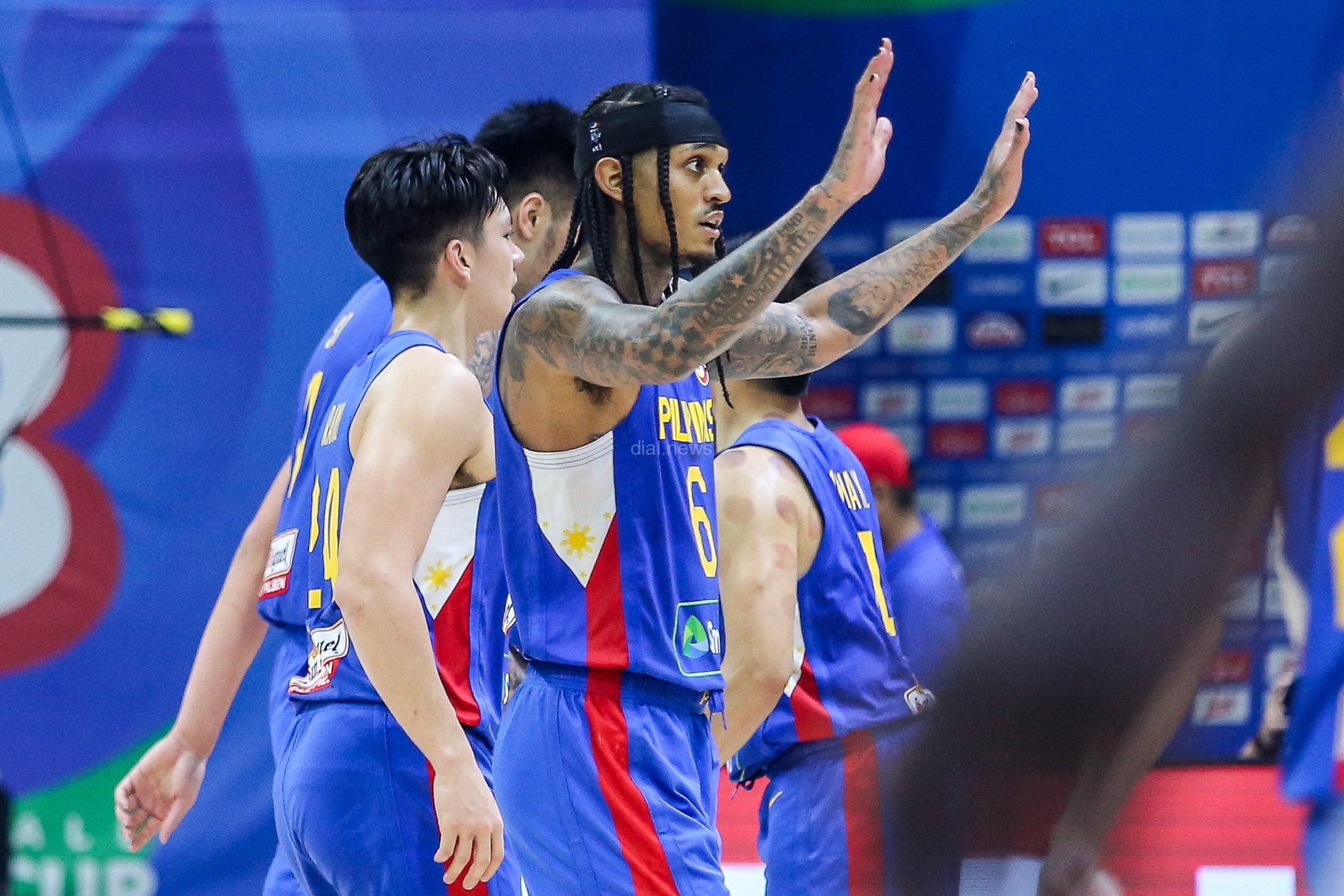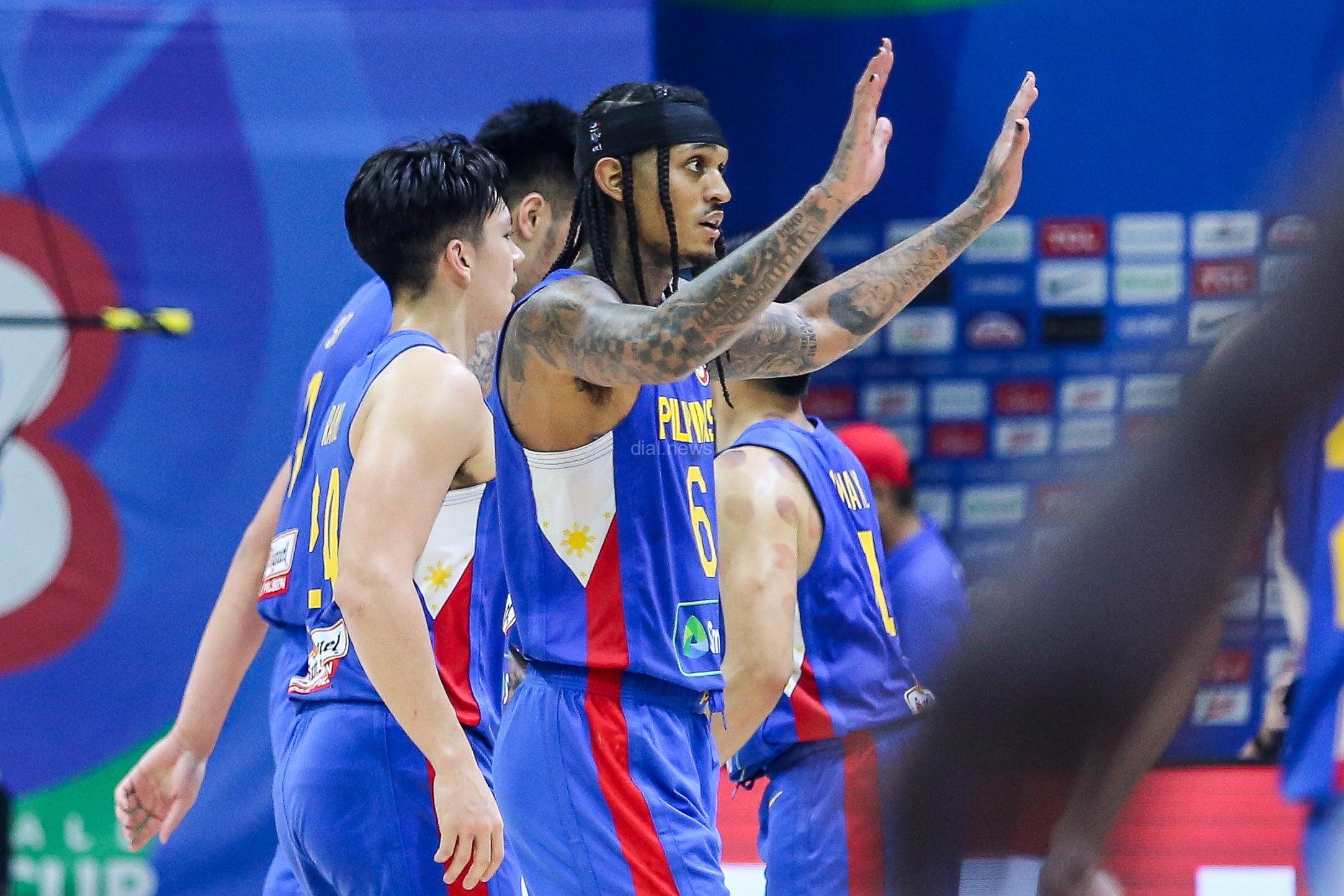[ad_1]

Gilas Pilipinas’ Jordan Clarkson. -MARLO CUETO/INQUIRER.net
Getting Jordan Clarkson to play in a Fiba event as a local continues to be a pipe dream.
Fiba secretary general Andreas Zagklis said the federation won’t be relaxing its eligibility rules any time soon, reaching for a hard “no” on Sunday when asked about the possibility of adjusting the guidelines.
“We will not go in that direction due to the specificities that we have in the sport,” he said in a tournament wrap-up press conference at Mall of Asia Arena in Pasay City, right before the bronze medal game featuring Canada and the United States.
“We have two, three big markets that produce players that are connected to a number of other countries and that would lead to national teams that have very little to nothing to do with the level of basketball and the development of basketball in a country,” he added.
The Fiba official’s comments means Clarkson will continue playing on as a naturalized player—Fiba allows one roster spot per country for such reinforcements in an effort to give countries in the lower tiers of the world ranking a chance at competing against traditional powerhouses.
Clarkson, a Filipino-American guard plying his trade for the Utah Jazz in the NBA, helped Gilas Pilipinas to a 1-4 win-loss record. The sweet-shooting guard has Filipino lineage rooted in his grandmother, who was born in Pampanga province.
Ticklish issue
His status as a naturalized player is a ticklish issue considering there are players who see action for their countries as locals despite not having actual roots there.
The technicality that allows this to happen is Fiba’s passport rule, which states that players who acquire passports of the country they represent before they turn 16 are eligible to play as a local of the said country.
“We have the United States, as you know, as a usual approach. You are born there, you have a passport, but of course, you may have at the same time have another passport due to your father or grandfather et cetera. So, as a rule, the central board is clear, one naturalized player. No. 1—this is a principle that I don’t see changing,” Zagklis said.
“And No. 2, the criteria for how someone gets the eligibility is clear. You have the passport, you are eligible. Now, if you have the passport after the age of 16, we have to see if you have significant links [to] the country, and if you didn’t, then you fall to the naturalized category.”
Clarkson has been a part of the country’s basketball program for five years, even suiting up for the national team in the 2018 Asian Games in Jakarta, Indonesia. And yet, he was not given an exemption despite the national federation’s fervent pleas leading up to the World Cup.
Former national coach Chot Reyes said allowing Clarkson to play as a local would free up the naturalized player’s spot for a much-needed big for the Philippines.
Amend requests
In the World Cup, it would also have allowed Gilas Pilipinas to suit up either Justin Brownlee or Ange Kouame.
Zagklis shared that he has walked member nations through the rule several times and was candidly blunt about how countries make repeated requests to amend it.
“It’s a very difficult rule. I spent this year in continental assemblies quite a lot of time reexplaining it to our members. [They’ll] understand it, but when we have our own case, everybody forgets the rule and says I would like a different rule.
And then when we say propose us a rule that’ll bring a fairer result—from a competitiveness point of view. Nobody has proposed something better than [the existing rule], I have to be honest with you,” he said.
“We’re sticking to this rule. And we have a very experienced team that is reviewing the eligibility and application of this rule and we have to be responsible on how we deal with that.”
Read Next
Subscribe to INQUIRER PLUS to get access to The Philippine Daily Inquirer & other 70+ titles, share up to 5 gadgets, listen to the news, download as early as 4am & share articles on social media. Call 896 6000.
For feedback, complaints, or inquiries, contact us.
[ad_2]

